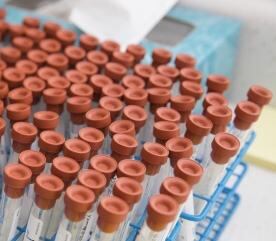Findings from the study suggest that different microbiota clusters were associated with a nasal inflammatory response, viral quantity, and symptom severity in rhinovirus infections such as the common cold.
Commenting on the six different patterns of nasal microbiomes linked to symptom severity, Dr Ronald Turner, study researcher based at the University of Virginia’s School of Medicine said, “The first surprise was that you kind of identify these different buckets that people kind of fit into”.
“Then the fact that the buckets seem to have some impact on how you respond to the virus and how sick you get was also interesting. There were effects on virus load and how much virus you shed in your nasal secretions.”
The nasal microbiota join the gut, vagina, and oral cavity as areas of the human body with distinct microbiome populations that play significant roles in conditions as diverse as depression, lowering blood pressure and weight management.
As a gateway into the respiratory system, the nasal cavity and its corresponding microbiota have been linked to upper respiratory tract infections but research has been few and far between.
However, firmicutes and actinobacteria have been identified as the predominant phyla detected in the nasal microbiota.
One notable study in children showed nasal microbiota clusters rich in Haemophilus influenzae or Streptococcus spp. associated with respiratory syncytial virus (RSV) infection and overexpression of inflammatory markers.
Study details

In the study funded by DuPont, the maker of a probiotic used in the research, teams from the University of Virginia and 4Pharma looked at 152 study participants' nasal microbiomes before and after giving them the cold virus.
This was to rule out the possibility the virus or the resulting sickness was altering the composition of the microbiome significantly.
The researchers then gave study participants a drink containing the probiotic Bifidobacterium animalis subsp. lactis Bl-04 – a strain previously associated with reduced risk of upper respiratory illness episodes over a five-month winter period in adults.
Initial findings found the most common nasal microbiota types to be Staphyloccocus, Corynebacterium/Alloiococcus, Moraxella, and Pseudomonadaceae/Mixed with each nasal microbiota type having a characteristic inflammatory response and viral load profile.
In general, subjects having Staphyloccocus, and Corynebacterium/Alloiococcus types had lower inflammatory responses and Pseudomonadaceae/Mixed type had lower viral load than other types.
These results suggest that nasal microbiota influences the host response to rhinovirus infection.
Importantly, changes in the response were reflected in cold symptoms and showed that subjects with Corynebacterium/Alloiococcus nasal microbiota type had lower symptom scores than Staphylococcus or Pseudomonadaceae/Mixed types.
Probiotic intervention
Further investigations could not determine a role of the probiotic drink with no effect found on the microbiomes in subject’s noses or on the microbiomes in their stomachs.
"We can detect the probiotic in the gut very frequently,” Dr Turner said. “Not in everybody, but very frequently."
“It didn't really dramatically influence the microbiomic pattern of the gut. So it's not like the probiotic alters the microbiome of the gut in any substantial way."
While it may be possible to administer a probiotic directly to the nose, via a spray, Dr Turner doubted this would make a big difference.
"It's not going to be so simple, I don't think, as saying, 'OK, what happens if you give a probiotic?'" he said.
In discussing possible directions for future research, Dr Turner said, "One of the things that would be interesting to ask, and this would be a completely different study, is, what happens if you give antibiotics?
“Can you change the nasal flora by giving antibiotic? And is that a good thing or is that a bad thing? Those are all unknowns."
Source: Nature Scientific Reports
Published online ahead of print: doi: 10.1038/s41598-018-29793-w
“Nasal microbiota clusters associate with inflammatory response, viral load, and symptom severity in experimental rhinovirus challenge.”
Authors: Markus Lehtinen et al

